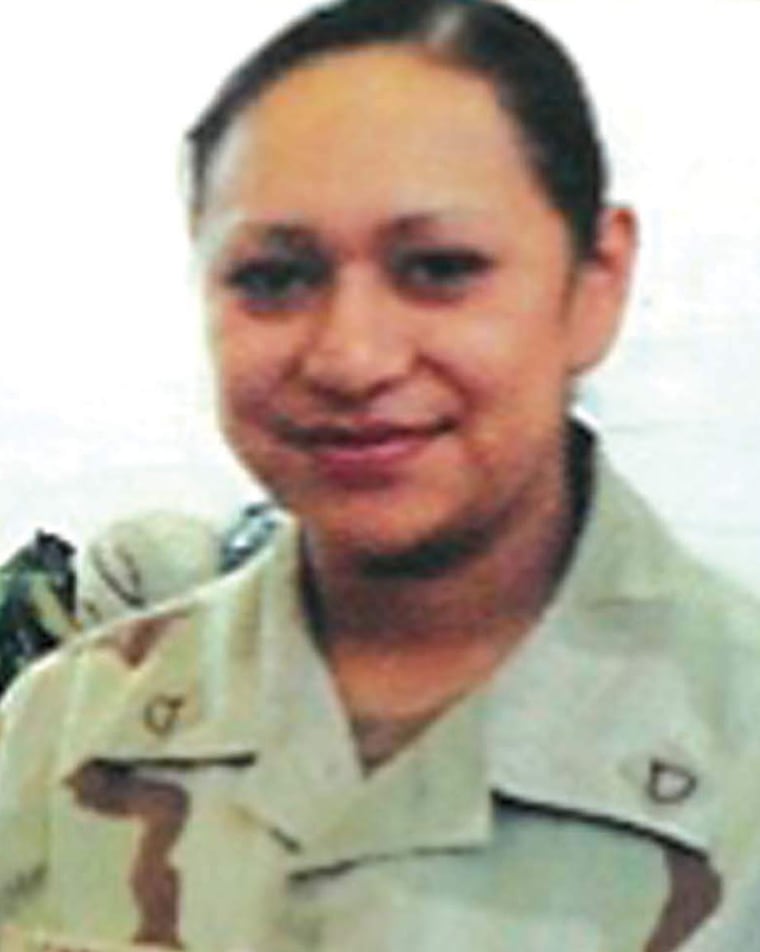A federal panel on Thursday officially renamed a Phoenix mountain for the first American Indian woman to die in combat while serving in the U.S. military, ending one of the country's most contentious fights over a place name.
Less than a month after Army Spc. Lori Piestewa was killed in Iraq in 2003, a state panel renamed Squaw Peak, one of the city's most popular hiking spots, as Piestewa Peak.
The U.S. Board on Geographic Names made the name change official Thursday in an 11-2 vote, Lou Yost, the board's executive secretary, said from Washington, D.C.
Many American Indians found the old name offensive and had been trying to change it for years, but critics called the change a heavy-handed political move by Gov. Janet Napolitano's administration.
Yost said supporters on the board felt that Piestewa (py-ES'-tuh-wah) symbolizes everyone who has died in the line of duty, while opponents argued that she didn't have a direct association with the mountain and is not of regional or national prominence.
The federal board requires a five-year wait before it will name geographic feature on maps and other federal publications after the dead, partly to let emotions on the question cool down. But Yost said the five years since Piestewa's death didn't do much to cool down hundreds of Arizonans.
"Apparently this is still an emotional situation out there," he said. "This is what we call a high-profile case." He said about 1,300 people called or wrote in to voice their opinions, and the board received an unprecedented number of e-mails. About two-thirds of those who contacted the board supported the name change, he said.
Piestewa's convoy took wrong turn
Piestewa, a 23-year-old Hispanic-Hopi mother of two from Tuba City on the Navajo Reservation, died after her convoy took a wrong turn and was ambushed near Nasiriyah in March 2003. Some of the members of 507th Maintenance Company, including her best friend, Jessica Lynch, were taken prisoner. Others died.
The story of Lynch's capture and dramatic nighttime rescue made her an instant celebrity. Lynch attends annual ceremonies at the peak and named her daughter for her fallen friend.
The peak is a popular destination for local hikers attracted to its convenient location in the middle of the city and its challenging trails to the 2,600-foot summit.
Larry Wayt, the leader of a local hiking group who runs the squawpeakhiker.org Web site, said he was disappointed in the federal board's decision to rename the peak.
"A lot of words are considered offensive now that didn't used to be considered offensive, and a lot of the words that are considered offensive are still used, and that really doesn't enter into it as far as I'm concerned," he said.
He said officials should have either left the name the same or found a way to honor all veterans.
Napolitano argued that changing the name of the landmark would be an appropriate tribute to Piestewa while removing the word "squaw." Although some linguists disagree, critics say "squaw" is derived from an Indian word for female genitalia.
"Lori Piestewa bravely served our country," Napolitano spokeswoman Shilo Mitchell said Thursday. "She sacrificed greatly, and so has her family, and by honoring her, we honor all veterans."
The controversy over renaming the mountain led to a nasty fight between Napolitano and the Republican-led Legislature. Like the federal board, the state panel that approved the name change has a five-year waiting period, but Napolitano and others persuaded the board to waive it.
